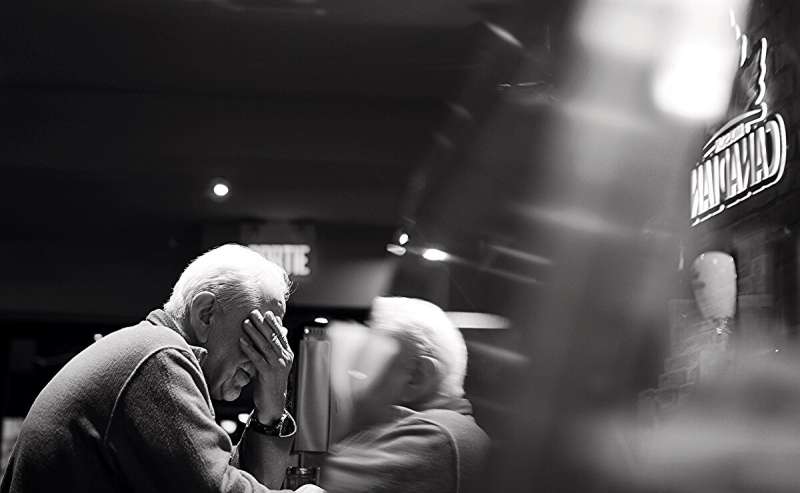When deciding to care for aging parents, affection trumps blame

It is often expected that as parents age, the children they once cared for will need to care for them. Expectations become less clear in non-traditional families and can be even murkier when the aging adult might be responsible for his or her situation.
In a new study about responsibility and caregiving, University of Missouri researchers found that being at fault for a health dilemma generally does not affect the perceived obligation of children to assist aging parents. They also found that genetic ties weren't required to feel an obligation toward an aging adult.
"In the U.S., roughly 40 percent of middle-aged and older adults with children are in stepfamilies, which means younger adults might have more aging 'parents' to whom they perceive to owe help," said Larry Ganong, emeritus professor of human development and family science and lead author of the study. "For adults who might have mothers, fathers, stepparents and others to care for, things might not be as clear-cut as blood being thicker than water."
Ganong and his team surveyed more than 250 people about a variety of scenarios, including a car accident and health issues associated with HIV. In one scenario, it is unclear why the car accident occurred. In the other scenario, the older adult was hurt in a car accident while driving after drinking several glasses of wine. Study participants also were asked about their obligations toward an older adult who has had HIV for years and someone who got HIV from using a contaminated needle.
The researchers found that being at fault or being blameless did not affect judgments about how obligated adult children felt toward older parents in need. They also found that stepparents, when at fault for their problems, are not seen differently than birth parents in similar situations. This means that when it comes to deciding whether to help an aging stepparent, people will rely not only on genetics, but perceived kinship ties.
"When it comes down to it, we found that affection trumps blame," Ganong said. "Even in scenarios where the older adult is to blame for his or her situation, we did not find conclusive evidence that blame was enough for a person to decide not to help. Especially if the person felt a strong familial bond to the adult who needed care."
"Responsibility inferences and judgments about helping older parents and stepparents," recently was published in the Journal of Social and Personal Relationships.
More information: Lawrence Ganong et al. Responsibility inferences and judgments about helping older parents and stepparents, Journal of Social and Personal Relationships (2018). DOI: 10.1177/0265407518786808
















